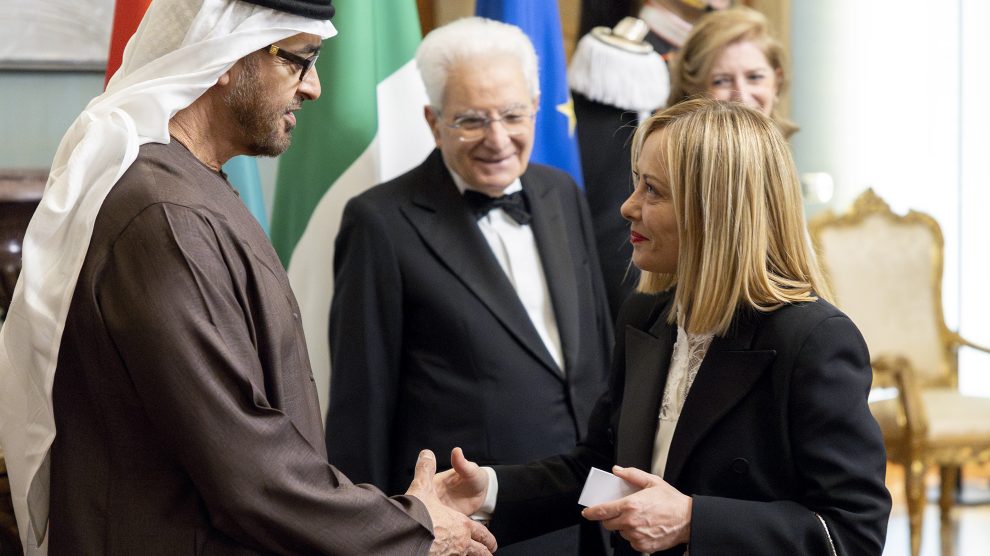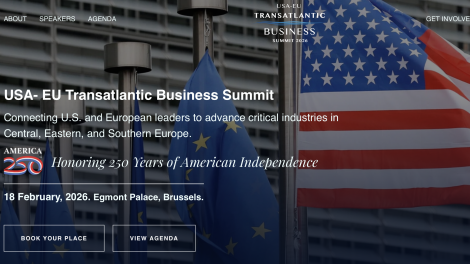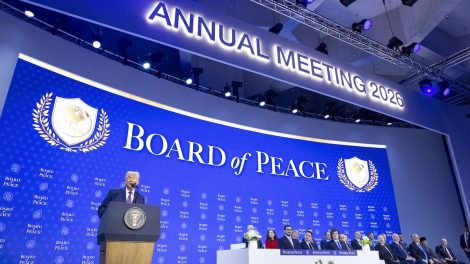Global trade shifts. As global trade routes shift, Italy is positioning itself at the heart of the India-Middle East-Europe Economic Corridor (IMEC) – one of the most ambitious infrastructure projects of the decade.
- Today, Italian Prime Minister Giorgia Meloni is hosting a bilateral business forum in Rome with UAE President Mohammed bin Zayed.
- On Sunday, Corriere della Sera reported that Meloni considers both countries as “crucial” in the project, and they “are ready to work together”.
- With competition heating up against France, Rome faces mounting pressure to move quickly or risk losing strategic influence.
Why it matters. IMEC is designed to link India with Europe via the Middle East, connecting key European ports like Trieste and Haifa with the Atlantic region.
- Seen as an alternative to China’s Belt and Road Initiative, the project places Italy at a strategic crossroads in the evolving global economy.
Italy’s growing role. The UAE has committed to investing €40 billion in Italy – a development hailed by Senator Giulio Terzi di Sant’Agata as “a truly extraordinary result for our Nation.”
- In a press statement, Terzi emphasised that this investment deepens Italy’s strategic partnership with the Gulf, reinforcing collaboration across key sectors, including energy, cybersecurity, and infrastructure.
- “It is impossible not to recognise the foresight of initiatives where Italy, under the Meloni government, is at the forefront – such as the Mattei Plan for Africa or the IMEC corridor. Italy and the UAE will fully cooperate on these projects,” he stated.
Geopolitics and urgency. The Italian government is expected to soon appoint a special envoy for IMEC – a role already filled by France’s Gérard Mestrallet for over a year.
- Paris has actively advanced discussions with India and begun infrastructure adjustments in Marseille, raising concerns in Rome about falling behind.
- Paolo Formentini, Vice President of the Foreign Affairs Committee in Italy’s Chamber of Deputies, warned, “Without a more decisive approach, we risk losing a share of European trade flows, potentially in favour of Marseille.”
- Meanwhile, geopolitical tensions – such as the Israel-Gaza war affecting IMEC’s route through Haifa – underscore the corridor’s complexity. Italian President Sergio Mattarella, in his meeting with bin Zayed, reaffirmed Italy’s commitment to regional stability, stressing the importance of a two-state solution for lasting peace.
Critical week ahead. A pivotal week lies ahead for IMEC and EU-India trade talks.
- On Thursday, European Commission President Ursula von der Leyen will travel to India, where IMEC will be high on the agenda alongside negotiations for an EU-India Free Trade Agreement (FTA).
- The EU views the FTA as a strategic complement to IMEC, aiming to strengthen trade with India while reducing dependency on China. Von der Leyen’s visit follows a series of high-level engagements, including Meloni’s diplomatic push in the Gulf, which is closely watched in Brussels.
- The second Trade and Technology Council (TTC) is scheduled during the visit, with the objective of boostingcollaboration on digital transition, clean technologies, and trade and investment.
What to watch. In March, Italian Defence Minister Guido Crosetto will travel to New Delhi for the Raisina Dialogue, setting the stage for further diplomatic engagement.
- In April, Italian Foreign Minister Antonio Tajani is set to visit India with hopes of solidifying Italy’s role in IMEC.
- These trips could signal Rome’s readiness to accelerate its engagement, potentially with the long-awaited appointment of an IMEC envoy.





